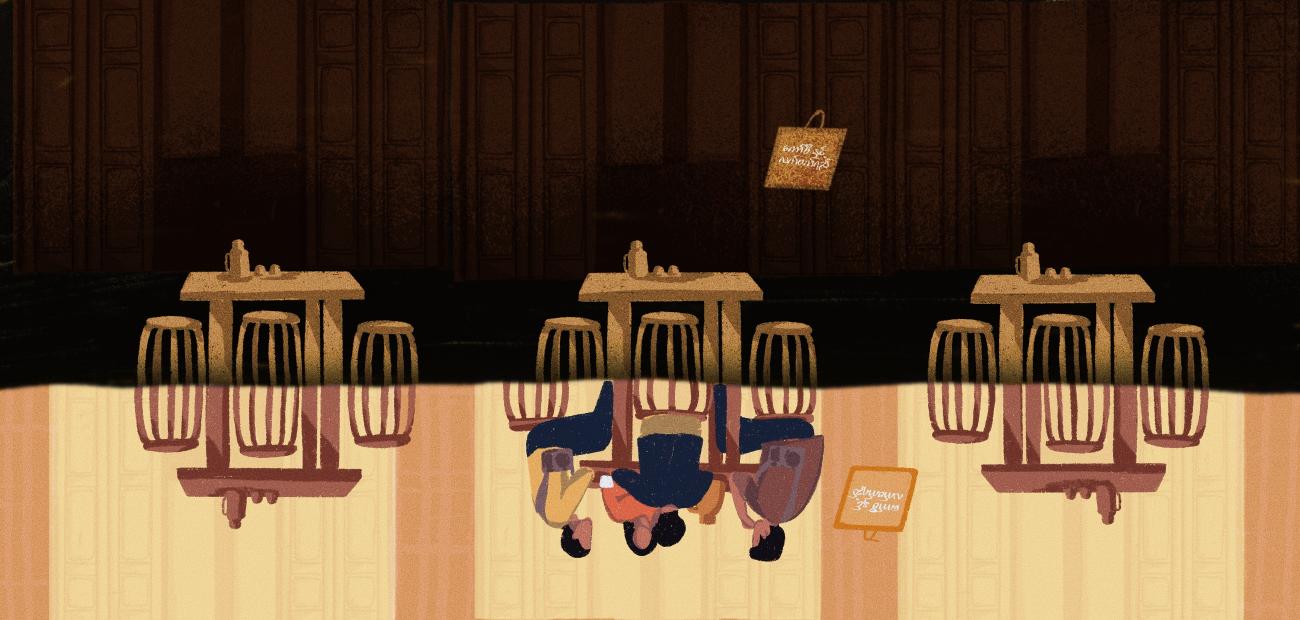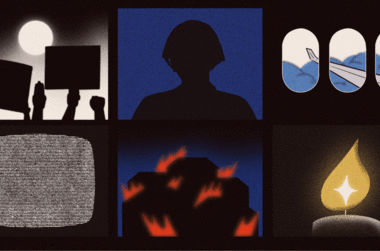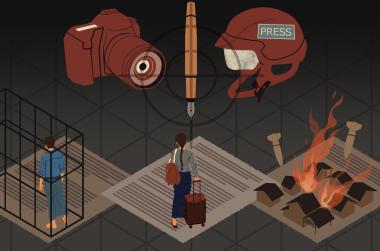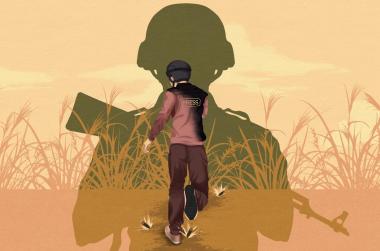The writer is a journalist in Yangon Region who is receiving support from The Kite Tales to write these diaries.
It has been nearly an hour since I’ve been sitting in this cafe, which often plays the well-known pop tunes of (the late singer-songwriter) Htoo Eain Thin. I went shopping in downtown Yangon and came to the cafe on my way back. This is a place I visit often. For the past four or five years, I have come here regularly for one reason or another, whether it’s for a bite after filming or to meet reporter friends. Now I am alone. What used to be a noisy, bustling place is now so different and so quiet.
Memories flash in my mind as I hum along to the music and stare at the empty tables. I think of my friends who used to come here. I miss them and wonder when I will see them again.
It’s popularity was partly due to location: the cafe is near Sule Pagoda in downtown Yangon. Protests often took place nearby, in front of City Hall, and the reporters who covered the events would come here afterwards. They would sit down, take out the memory cards from their cameras, open their laptops and send their images to their various offices. The food here is reasonably priced, so reporters who had not eaten anything would have their meals here too.
As soon as you walked in, you would see good friends arguing over something, joking with each other. And also working. If there was something to report somewhere in Yangon, we tended to meet here and then rent a car to go to the place where we would be reporting together.
If I think about work-related friends and acquaintances, this cafe was central. I started coming to this place after I started working as a reporter in around 2017 and made new friends here.
I can’t stop remembering how this restaurant was always cluttered with cameras, laptops and all sorts of food.
But everything has transformed in just one year. There are no reporters in the cafe now. Most of my friends are gone and I know it will be impossible to see them again in the next few years. These are the consequences of the military coup which took place on Feb 1, 2021.
After the army seized power journalists continued to cover the mass protests that erupted across the country. I was working as a freelance journalist at the time. When I saw other full-time journalists documenting what’s going on using their cameras, I couldn’t stop myself from going out and reporting either. It’s not about where the stories will go, or where they should be published. It was just that I thought we should record these events.
But it didn’t last long. The military cracked down on protesters with live ammunition, while soldiers stormed the offices of major local media outlets, seizing documents and arresting whoever they met. Finally, they shut down the news organisations.
That was the beginning of this hell for reporters. If you are a journalist, you could no longer stay at home. We slept at night wondering when someone would come knocking on our doors. Those were the days when dogs barking woke you up. I was always asking - are my boyfriend and my friends safe? Are they ok? Whenever we heard news of a protest being broken up somewhere and journalists being arrested, we would call each other to try to find out what happened. Those were stressful, anxiety-filled days.
We were all separated.
Many journalists have been forced to leave Yangon. They fled to neighbouring countries or areas controlled by ethnic armed organisations. From there, they continued reporting. Others were forced to flee because arrest warrants for them were issued. Some were arrested and went to jail.
All of this happened within just one year of the military coup. These days, journalists still in the country, including myself, have to stay in hiding. Some took up arms instead of working as reporters because they decided only armed resistance would work. In this country, the military views journalists as criminals. It’s not a good feeling to have to live quietly and not interact with people, even though we haven’t committed any crimes. I was so depressed that I did not know what to do.
People who used to be full of laughter and jokes in the workplace, friends I used to hang out with after work to drink beer… almost none of them are in Yangon anymore. Reunion will be possible only if the military dictatorship is overthrown.
The situation has worsened recently. Journalists are prosecuted on terrorism charges. Their family homes were confiscated and sealed. At least 130 journalists have been arrested since the coup and about 50 are still in prison. I think the military is instilling the fear that those who work as journalists will face such fates. Under the dictatorship, I felt that being a journalist is more of a crime than doing illegal deeds.
In other words, this little cafe is a stark reminder of how many people I know have left. I don't go out much anymore. When I do, I often do not see anyone else. In this day and age, it is more helpful not to ask where your friends are. So it’s best if you don’t meet up with anyone. If I come downtown, I’ll do my business, eat something and then go home promptly. But I'm still not used to the new atmosphere, which is so different from the past. When I think of how there is no one around anymore, I cannot sleep.
Life is about growing up, getting around and the people and places you come to know. Without these memories, there would be no life, right?
I do not know if I can say there is life in the days I am now going through. Stay indoors as much as possible. Try not to meet anyone. Hide what you do from others. And the people I know and love are no longer here. I think the happiest day for me will be when I can see them again.
Artwork by JC who is receiving support from The Kite Tales to produce illustrations.





